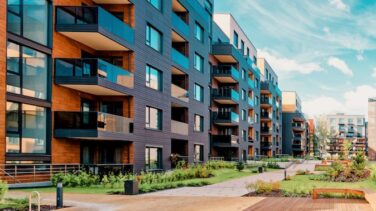Many thanks to Patrick Young of Able USA for writing this guest post. 
Finding the perfect home is always a challenge. When you have to factor in accessibility, however, the stakes are higher, and the options fewer. It can quickly start to feel like there’s just no house on the market that’s right for you.
The team at coUrbanize is dedicated to creating great communities, and that means ensuring that everyone can find the right space.
Here are some tips you can use to make your accessible housing hunt easier, less stressful, and more effective:
Figure Out Your Budget
Your first step in buying a home is always sussing out your budget. There are plenty of online calculators that can help you figure out what kind of loan you’ll qualify for. If you’re a first-time buyer, you can also apply for an FHA loan. This requires a smaller downpayment, so you’ll have more wiggle room in your budget. You need as many options as possible when accessibility is part of the picture, so keep this option in mind.
Once you have a general sense for what you can afford, you should start researching your local market. Take a look at what kind of homes are currently for sale and what their asking prices are. A quick online search will tell you a lot. For instance, you can see that Cambridge has a competitive market, with most homes selling at 1 percent above the listing price. Use this information to get a general sense for what kind of home you’ll be able to afford.
Find a Trustworthy Guide
Your first step should be finding a trustworthy real estate agent that can guide you through the home buying process. Ideally, you should find one who has experience working with people with disabilities. This will spare you from the process of constantly reminding them that you have different needs and specifications than the average client.
One way to find a qualified agent is to reach out to local disability services and ask for a referral. You should also ask around in your community and disability network to see if any friends or acquaintances know of anyone who might be able to help. Get a few peoples’ names, and then schedule a phone call to see if you click with any of them.
The Balance suggests that you plan to ask plenty of questions in that initial conversation. Ask about their experience with finding accessible homes, especially in the areas you’re considering. Explain your needs fully and clearly, and pay attention to whether they seem to absorb the information. You want to go into this partnership absolutely confident that your agent understands what you need in a home.
Ask for Longer Tour Slots
When your agent sets up tours for potential homes, consider asking for a longer tour slot. Right now especially, house tours tend to be short so that buyers can get as many viewers in as possible. However, you need to give yourself time to truly evaluate a property. Ask for a double slot to ensure you have the ability to tour the home properly and gauge whether or not it’s a good fit.
While you’re touring, interact with everything you can. Try the drawers, open the cabinets, turn on the faucets. This will give you a sense that everything in the home works, but it can also help you identify any difficult or inaccessible parts of the home you might have overlooked otherwise. Use your time wisely, and you’ll have a better shot at catching issues you’d rather avoid.
Stay Open Minded
Finally, try to stay open minded on your search. The house you pick doesn’t have to be perfect – it has to be adjustable. For example, you might find a home that’s nearly perfect, except it has a tricky step up to the front door. Adding a ramp is a simple home project that you can knock out before you ever even move in. Keep accessibility projects in mind, and don’t rule out homes that only need one or two simple changes to suit your needs.
House hunting with a disability is a big process, but the effort will be well worth it. Hopefully, more home designers will start to take accessibility into consideration when developing spaces, as nearly 90 percent of homes on the market are not designed with accessibility in mind. And while retrofitting is certainly an explorable option, people with disabilities need more “ready to buy” options that don’t require extensive work and modifications once they’ve purchased the property. You deserve a home you can live in in comfort. With the right techniques, you’ll be able to find the property that’s right for you.
– Patrick Young, Guest Author
Patrick Young is an educator and activist. He created AbleUSA to offer helpful resources to people with disabilities and to provide advice on navigating various aspects of life as a person with disabilities.


